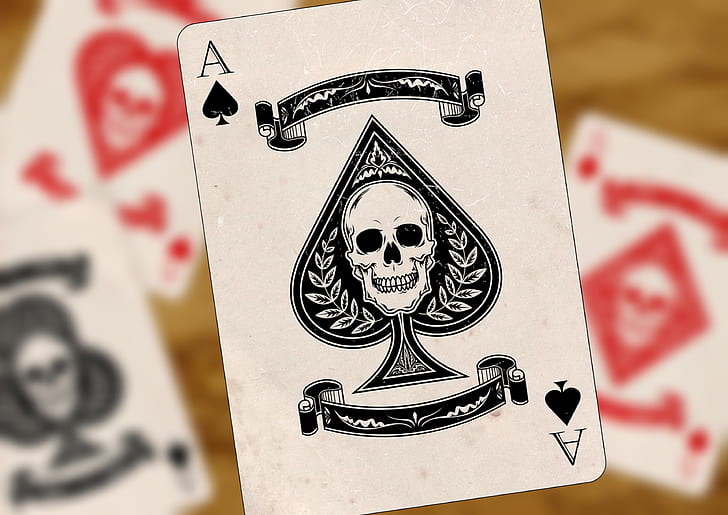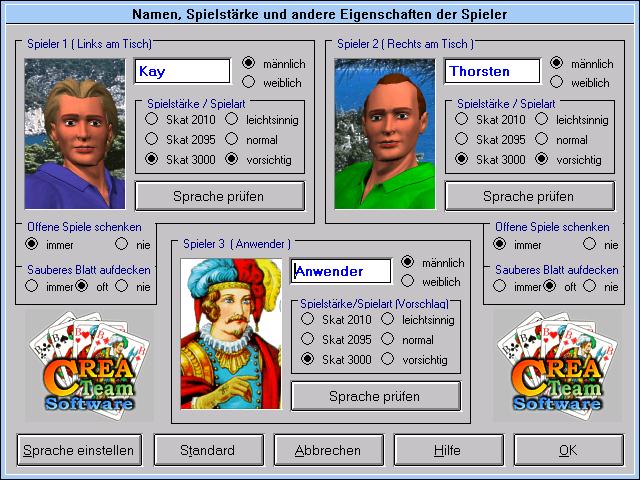
In addition, the global organisation, the International Skat Players Association, is primarily responsible for organising the World and European Championships, but its subdivision, ISPA Germany, like the DSkV, organizes its own German individual and team championship and leagues, among other activities. Most German Skat clubs are affiliated to the German Skat Association (DSkV), which organizes the championships. In contrast to most other card games, Skat is organized as a sport, with Skat associations, clubs, ranking lists and even a national league. Tournament Skat is regularly held in restaurants. Nowadays, it is very popular to play the Skat game online through internet browsers.

Skat is completely unrelated to an American game called Scat. The word scarto is still used in some other Italian card games to this day. The word Skat is a Tarock term derived from the Latin word scarto, scartare, which means to discard or reject, and its derivative scatola, a box or a place for safe-keeping. The current rules, followed by both the International Skat Players Association, German Skat Federation and British Skat Association, date from Jan. These were the first official rules finally published in a book form in 1888 by Theodor Thomas of Leipzig. Nevertheless, the rules continued to differ from one region to another until the first attempt to set them in order was made by a congress of Skat players on 7 August 1886 in Altenburg. The first book on the rules of Skat, Das Scatspiel: Nebst zwei Liedern, was published in 1848 by one of its inventors, secondary school teacher J. The four Unters were permanent trumps ranking above the trump suit. The declarer needed 61 card points to win and there were bonuses for scoring 90 ( Schneider), taking all tricks ( Schwarz) and, optionally, for holding or lacking matadors in unbroken sequence from the top. A Frage bidder could be overcalled by a Solo and either could be overcalled by the same contract in a higher-ranking suit, the suits ranking in the same order as in the modern game. There were just two contracts – Frage and Solo – and forehand opened the bidding or passed. These describe a game for 3 players with German-suited cards who received 10 each in packets of 3, 2, 3 and 2, the two remaining cards being dealt to the table as a talon known as the Scat. The earliest recorded rules for "Scat" date to 1835, by when it was already popular in the Kingdom of Saxony, especially in the Duchy of Altenburg and the surrounding area. But the main innovation of this new game was that of the bidding process. He then made two discards, constituting the Skat, and announced a contract. In the earliest known form of the game, the player in the first seat was dealt twelve cards and the other two players ten each. It has become the most loved and widely played German card game, especially in German-speaking regions. Skat is based on the three-player game of Tarock (German for Tarot) and the four-player game of Schafkopf (forerunner of the American game Sheepshead). Skat was developed by the members of a local Tarock club, the Brommesche Tarok-Gesellschaft around 1809 in Altenburg, in what is now the State of Thuringia, Germany. Main article: History of Skat Skat players in an Erfurt park in 1967 John McLeod considers it one of the best and most interesting card games for three players, and Kelbet described it as "the king of German card games." History A variant of 19th-century Skat was once popular in the US. It is the national game of Germany and, along with Doppelkopf, it is the most popular card game in Germany and Silesia and one of the most popular in the rest of Poland. Skat ( German pronunciation: ), historically Scat, is a three-player trick-taking card game of the Ace-Ten family, devised around 1810 in Altenburg in the Duchy of Saxe-Gotha-Altenburg. Practice or success at social casino gaming does not imply future success at "real money gambling".Typical Skat trick from a French-suited packįrench, German or Tournament-suited "Skat" pack This game does not offer "real money gambling" or an opportunity to win real money or prizes. The game is intended for an adult audience. German law recognizes, that playing Skat is not "gambling". Please contact the authors if you are interested in a localized version.

Warning: The spoken game sound is German language only. Select your own photos for the computer opponents Choose from three great background scenes Customize the rules with Kontra, Re, Bock and Ramsch Play the original on iPhone and iPad and enjoy many hours of intensive gameplay! The Skat app was #1 card game for over six weeks in the German App Store. It is the most popular German card game played by over 20 million people. Skat - the most popular German card game!


 0 kommentar(er)
0 kommentar(er)
